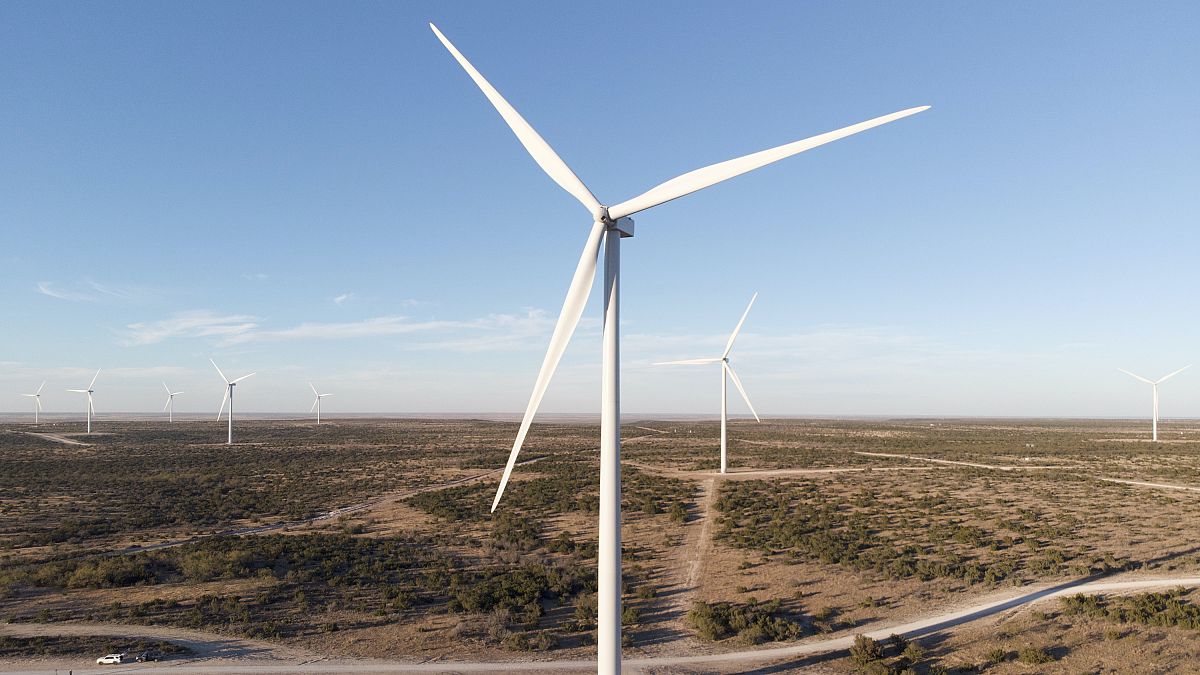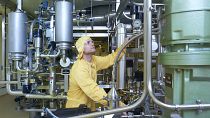As the world slowly begins to climb out of the depths of the pandemic, a new reality has emerged. Nearly two-thirds of the world now believes climate change is a global emergency that requires immediate action toward environmental sustainability.
Sustainability means more than just clean energy. The opportunity to build back up from such economic lows means we can address points of inefficiency and inequity. It means reducing energy and water consumption, preventing waste through circular solutions, putting a price on carbon, and investing in green jobs across all sectors. It means rethinking the role of government aid and how we expect the world’s biggest companies not only to support or participate, but to lead through action.
A study from the New Climate Economy reports that shifting to a low-carbon economy has the potential to create $26 trillion (€21 trillion) in global growth and 65 million new jobs by 2030. Other studies have shown government spending that cuts carbon also brings a substantially higher return on jobs and economic growth. And since the pandemic began, companies with strong corporate environmental policies have outperformed the market and in many cases their competitors.
This economic transformation is already at play in Europe: The EU’s Green Deal sustainability roadmap shows how carbon neutrality and climate resilience can fuel economic growth. Rather than scrap the goal during the pandemic, the EU enhanced it, folding environmental responsibility into its ambitious €1.8 trillion recovery plan.
There is also a sea change happening among businesses. Through the Science-Based Target Initiative and the UN Global Compact, more than 155 corporations — representing €1.9 trillion in the global economy and 5 million workers — have reaffirmed their own science-based commitments toward a zero-carbon economy. These are some of the biggest and most visible companies on the planet, including the likes of Coca-Cola, Hewlett Packard, and Nestle, as well our company, Novartis. These and dozens of others have begun making major operational changes to reduce their emissions. And combined, they’ve coordinated their efforts to keep warming below 1.5 degrees Celsius — the level widely considered the threshold of catastrophic consequences. Many of these companies not only stood firm in their environmental sustainability commitments during the pandemic, but even increased the scope and speed of their ambitions.
Novartis has been among the leaders in this group, demonstrating how it’s possible to turn bold commitments into big changes and investments. Like many progressive companies, however, we need to speed up our action. Delays in addressing these issues will result in lives and euros being lost, and the longer we wait, the higher the costs.
In the immediate term, we’ve begun making our facilities more efficient, reducing carbon emissions, reducing our use of plastics, eliminating hundreds of tonnes of waste, and dramatically reducing our water use. By 2030, we plan to be 100 per cent renewable-powered, and carbon, plastic and water neutral across all our operations and our value chain. We’ve already made all of our purchased electricity in the US and Canada carbon neutral, and ground has been broken for the first of five projects that will accomplish the same for our European operations by 2023. We’re rolling out low emission and zero emission vehicles in multiple major markets globally. And we’re funding research by the Massachusetts Institute of Technology (MIT) Joint Program on the Science and Policy of Global Change on the health impact of climate change.
Just as important as making and meeting these goals is how we do it. To make these initiatives a reality, they can’t be directives coming from the top. They need to involve every level of a company to inspire employees, suppliers and customers that these are exciting and crucial changes worth the effort and cost.
Success relies on seeing major steps toward environmental sustainability not as a cost to a company, but as an opportunity to deliver value to the company and to society. Cleaner air will help prevent millions of deaths around the world and reduce costs of lung cancer, heart attacks and strokes. Cleaner water and ecosystems will enhance our food systems and support wildlife. The pandemic has exposed the costs of a distant relationship with nature and a lack of preparation for biological risks. Building a cleaner future will not only improve our climate, but also human resilience.
Even the biggest companies can’t make these adjustments alone. Businesses can influence markets and consumer behavior, and many are already taking aggressive action. However, for solutions to be proportional to the size of this challenge, the biggest changes must come from governments. We need officials at the national and international level to set global carbon pricing mechanisms to drive investments in efficiency and the development of cleaner technology. We need leaders to devote public funds toward mass transit and to accelerate green construction and the development of low-emission vehicles. We need public-private partnerships to focus on identifying and resolving the climate health equity issues that are impacting communities with already low levels of resilience even prior to the pandemic.
More than anything, we need bold leaders in the public and private sector to turn commitments into action that catalyses real and enduring change. A clean and healthy planet is within our grasp.






